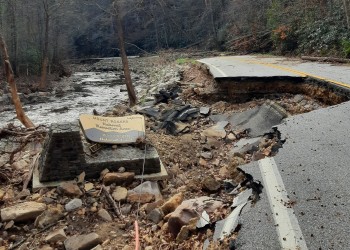Welcome to the George Washington & Jefferson National Forests
Stretching along the border of Virginia and West Virginia, the George Washington and Jefferson National Forest blankets the Blue Ridge mountains offering 1.8 million acres of lush woodlands, unique mountain balds, peaceful waterways, and adventures galore. With more wildlife and trails than you can explore in a lifetime, every route on the forest carries visitors to new memories. All four seasons are in abundance here, with the explosion of colors in the spring wildflowers challenged only by the flames of colors of the autumn leaves. Summer brings bears, deer, birds and a multiplicity of pollinators, while winter’s stillness is broken only by the crinkle of cracking ice cascades where frozen waterfalls shine in the sun. Come enjoy and explore the natural beauty at the heart of the Appalachian Trail!
Recreation Opportunities

The George Washington Jefferson National Forest offers a wide variety of outdoor recreational opportunities including hiking, biking, OHV riding and more!
Firewood, Rock and Mushroom Collecting

Know the rules for firewood, rock, and mushroom collection on George Washington National Forest. Depending on the amount of collection, permits are required.
Recreation Passes

The America the Beautiful Interagency Pass series and the George Washington & Jefferson National Forests Seasonal Day Use Pass are accepted at certain day-use areas and campgrounds. Each site is specific on requirements. The Virginia State Parks pass does not apply on the National Forest.
Plan Your Trip

Reserve your favorite campsite, find your day use area, or your favorite trail for your next outdoor adventure.
Disaster Recovery

Learn about the effects of Hurricane Helene, the rehabilitation efforts of the Virginia Creeper Trail, prescribed fire and timber salvage projects in the George Washington and Jefferson National Forest.
Know Before You Go

George Washington Jefferson National Forest provides a natural arena for a wide variety of fun and exciting outdoor activities. To help you get the most of our your experience, be aware of closures, alerts and critical fire information for your safety.



